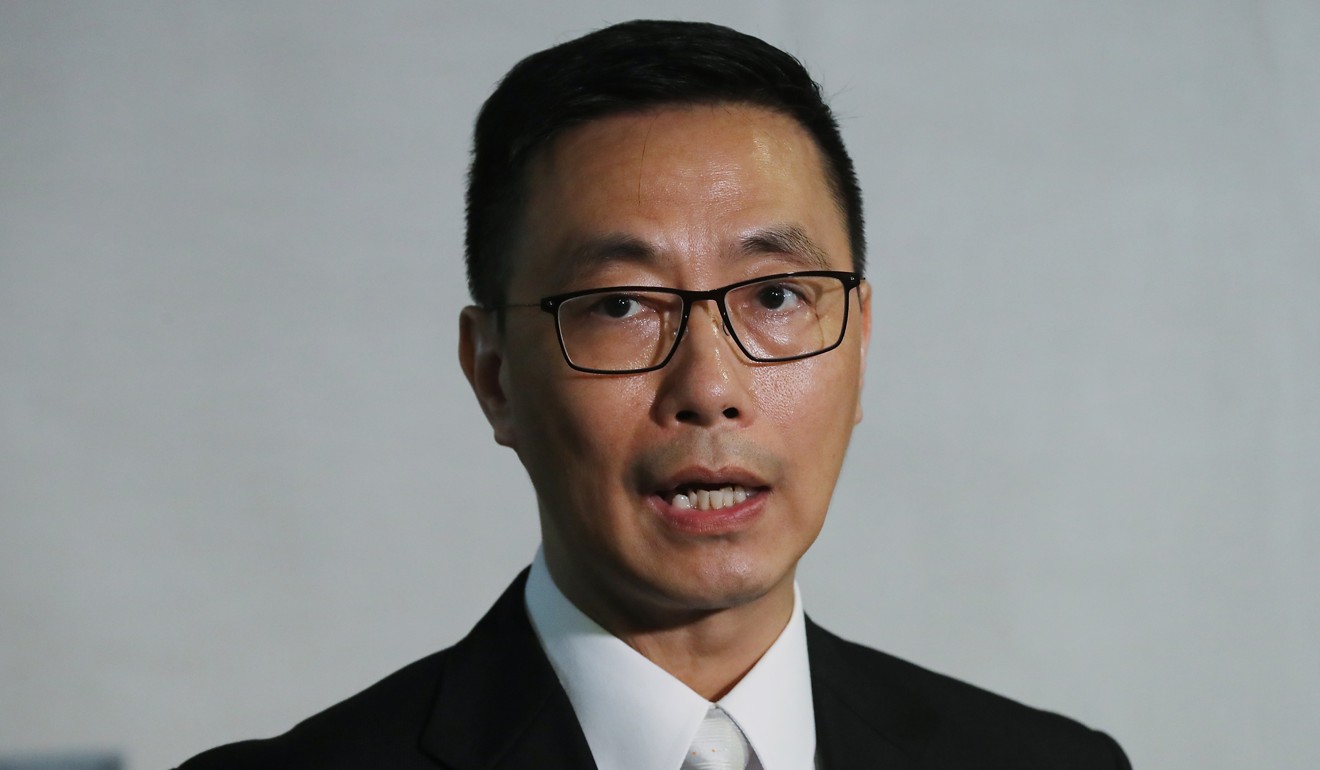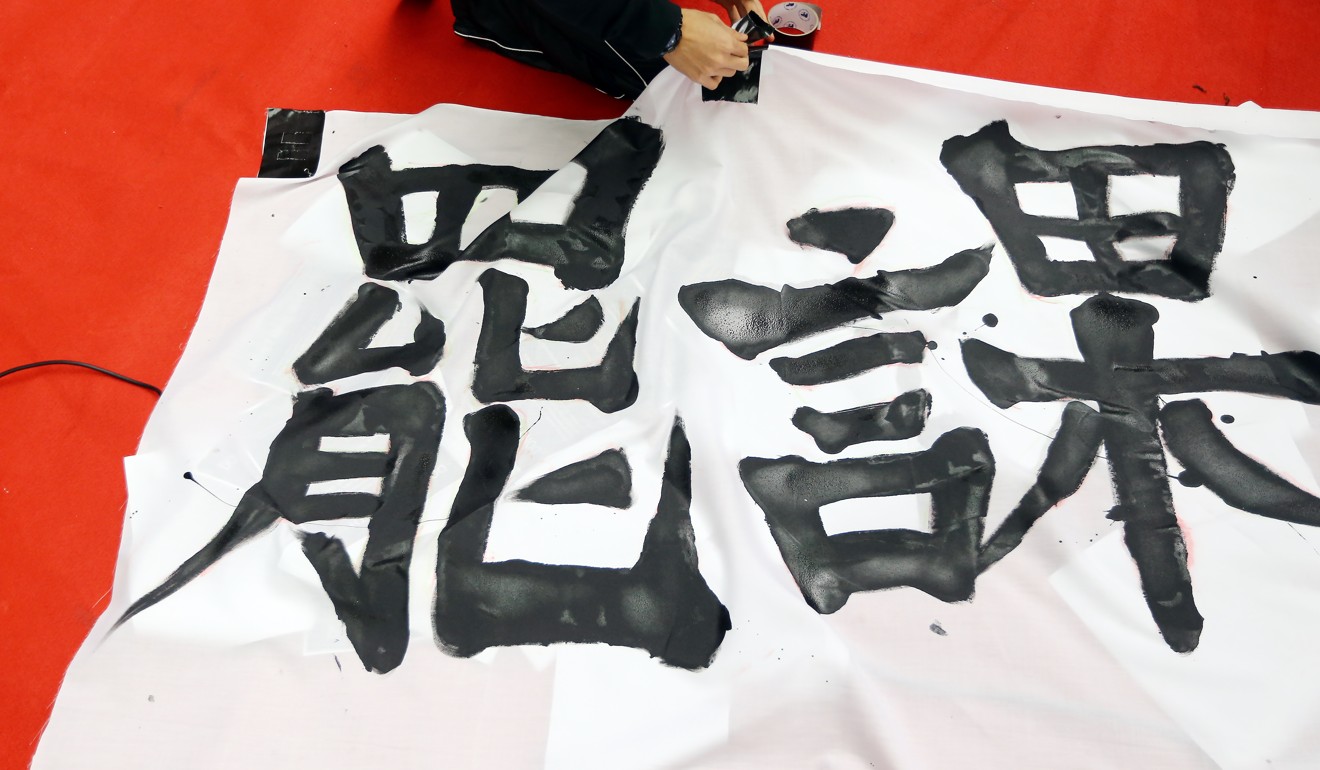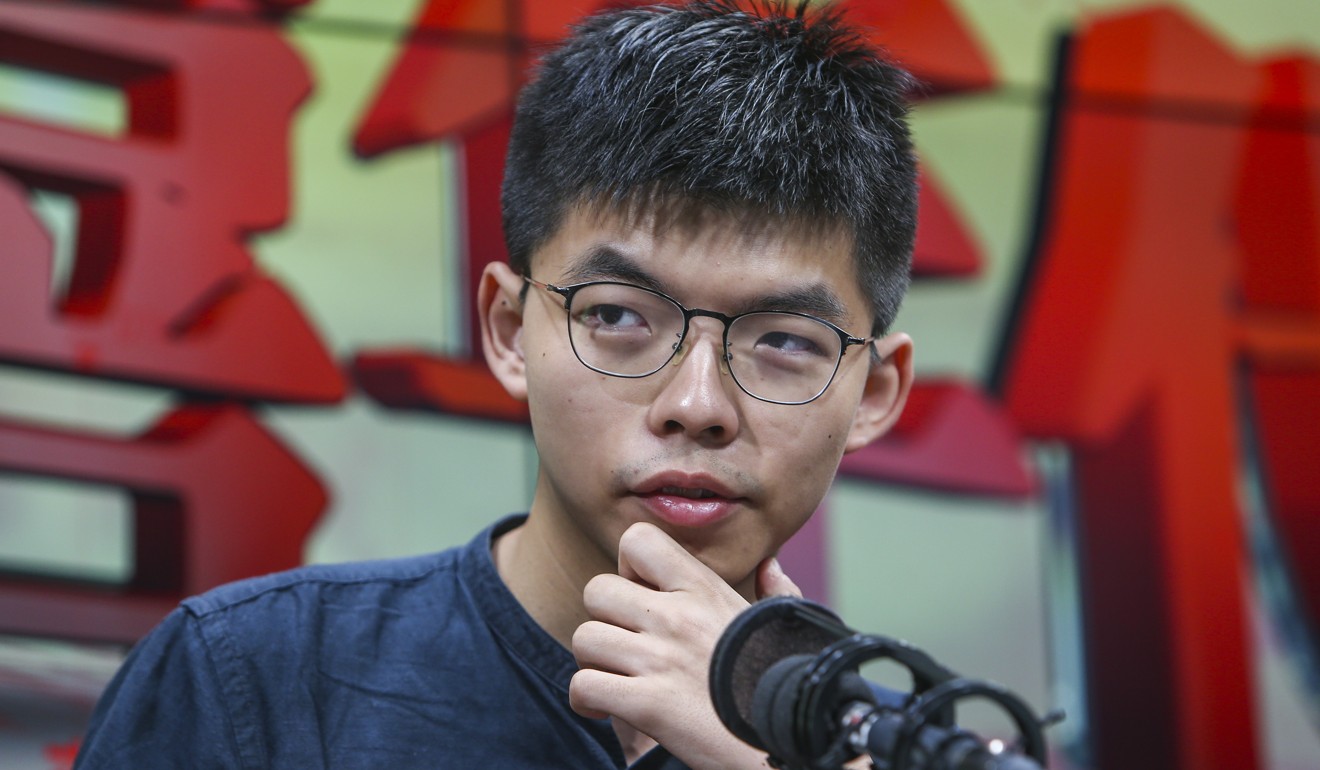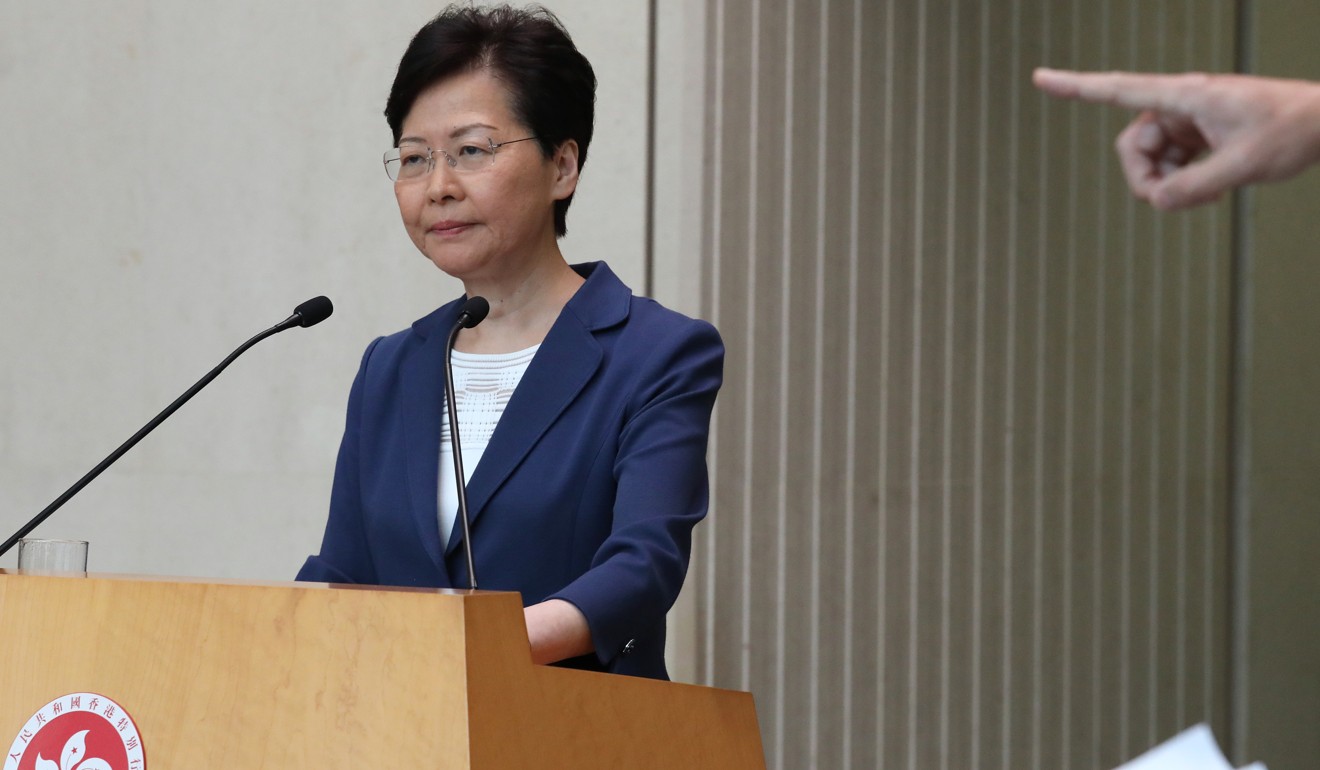
Hong Kong education minister deplores boycott after thousands of secondary students say they will heed Demosisto’s calls to skip Monday classes weekly over protest demands
- Kevin Yeung says boycott will disrupt operations of schools and sow discord on campuses
- Survey by group and other student concern bodies of 19,473 respondents finds 89 per cent backing protesters’ demands
Hong Kong’s education minister on Friday sought to discourage secondary school students from boycotting classes when school resumes next month, after a survey found thousands of them backed such action to protest against the now-shelved extradition bill.
Kevin Yeung Yun-hung said on his Facebook page that there were other ways for students to express their opinions and there should not be political interference in classrooms, a position that both the Education Bureau and schools agreed on as they were opposed to boycotts.
“Apart from affecting the normal operations of schools, this will also deprive students of normal learning opportunities and even affect emotions, bring about pressure and disrupt harmonious campuses,” he wrote.
Yeung also said he and his colleagues had since Thursday been meeting representatives from the education sector to understand their situation and help them prepare for the resumption of classes on September 2.
A bureau spokeswoman added that guidelines would be provided for schools to handle the situation.
James Lam Yat-fung, ex officio member of the Subsidised Secondary Schools Council, who met the bureau, believed the guidelines would be general, rather than holding schools to specific directives. Lam, principal of Lions College in Kwai Chung, said after the class boycotts of 2014, schools had experience in handling such situations.
While he was against the boycotts, Lam said his school would not immediately penalise students involved in them, but rather understand their reasons and provide resources to help them. He said his school had set up an emergency response team that included management staff, and would also incorporate form teachers and a social worker to handle cases.

Lam said each situation would be looked at in a case-by-case manner, but his school would need to consider whether rules were broken. He said while students had no leave unless for sickness, his school granted days off for exceptional cases such as bereavement.
Since early June, Hong Kong has been rocked by a wave of anti-government protests sparked by the extradition bill, which thousands of young people, including secondary school students, have joined.
How the Hong Kong protests inspire Macau’s youth – and teach their government to be wary
The legislation would have allowed the transfer of criminal suspects to jurisdictions with which the city did not have an extradition agreement, including mainland China.
The findings of the survey came as Hong Kong braced for yet another weekend of protests calling for the full withdrawal of the bill, as well as the appointment of a judge-led independent inquiry into police use of force on protesters since June.
On Friday, a police watchdog investigating complaints against the force extended the scope of its probe. The Independent Police Complaints Council had been investigating incidents between June 9 and July 2. It will now also investigate complaints after that date and will continue to aim for publication of its first phase report within six months, a spokesman said.

Among protests expected over the weekend, police had banned a march and rally in Hung Hom on Saturday but late on Friday night the organiser said it had won an appeal against the decision. The march will start at 3.30pm with an altered route.
The force had approved a teachers’ rally as well as a pro-government rally on Saturday. These will be followed by the Civil Human Rights Front’s rally – but not a march – at Victoria Park in Causeway Bay on Sunday. Protesters are likely to defy the police ban on marching, as they did on previous weekends.
Hong Kong protests put China’s international media drive to the test
The front’s application for a march was rejected, as police said the group could not ensure public safety given the escalating violence at recent protests. An appeal by the front, whose march in June drew an estimated 2 million people, on Friday evening was denied.
Ahead of the weekend, the students’ survey caused concern on Friday in the education sector. The poll was conducted by two student concern bodies and pro-democracy group Demosisto, co-founded by political activist Joshua Wong Chi-fung. The group had earlier called for a general boycott.
On Friday, Demosisto vice-chairman Isaac Cheng Ka-long said: “Based on the poll results, we will call for students to boycott classes every Monday, for an indefinite period of time.”

The poll involved 19,473 secondary school students, mostly between Form Four and Six from more than 350 schools, over four days.
A total of 89 per cent of respondents said they supported the boycott to force the government into fulfilling protesters’ demands, including an official withdrawal of the bill, and the appointment of an independent inquiry into police handling of the protests.
Hundreds of students skip school in call for action on climate change
In the survey, when asked how they would support the boycott, 49 per cent of respondents said they would join the action, 31 per cent were still willing to attend classes but wear accessories such as ribbons or badges to make a statement, while the remainder said they would support demonstrations after school.

Fung Wai-wah, president of the Professional Teachers’ Union, the city’s largest teachers group, said the union respected students’ plan to boycott classes.
“This is a reasonable way for them to express their demands,” Fung said. “We hope schools can handle this in a lenient manner.”
But the union said it had no plans to organise a boycott among teachers.
Extradition bill crisis: Why are young people angry and deeply unhappy?
Education sector lawmaker and vice-president of the group Ip Kin-yuen, however, warned the move could be made “should the situation worsen”, but did not make clear what would warrant it.
Separately, the Safeguard Hong Kong Alliance, comprising pro-government political and business figures, said it would work with schools to hold activities on campuses to encourage students to focus on their studies and allow peace to resume.
The group also urged the bureau to work closely with police and schools to strengthen security in the vicinity.


